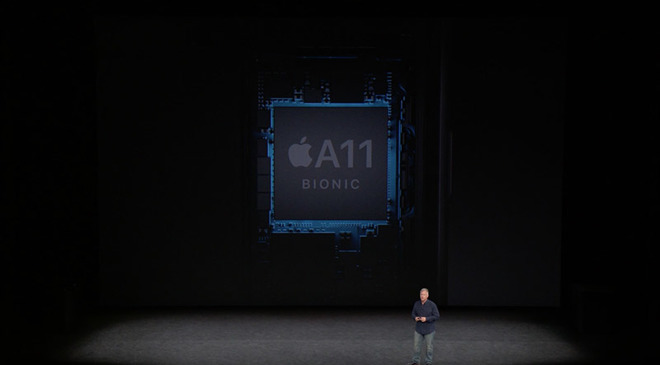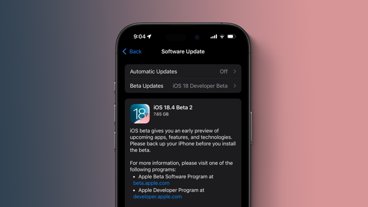Following the news that both Intel- and ARM-based processors can be susceptible to various hacks, Apple issued a statement on Thursday announcing that it has already implemented some fixes in the latest iOS and macOS releases, with more still to come. However, there are not currently any known exploits taking advantage of "Meltdown" and "Spectre."
"All Mac systems and iOS devices are affected, but there are no known exploits impacting customers at this time," Apple said in a statement. "Since exploiting many of these issues requires a malicious app to be loaded on your Mac or iOS device, we recommend downloading software only from trusted sources such as the App Store.
"Apple has already released mitigations in iOS 11.2, macOS 10.13.2, and tvOS 11.2 to help defend against Meltdown. Apple Watch is not affected by Meltdown. In the coming days we plan to release mitigations in Safari to help defend against Spectre. We continue to develop and test further mitigations for these issues and will release them in upcoming updates of iOS, macOS, tvOS, and watchOS."
Some reports have alleged that fixes for the chip kernel flaws could affect system performance and potentially slow down systems. However, Apple's own tests have shown that fixes for "Meltdown" and "Spectre" have minimal, if any, effect on system speed.
Apple explained that the security exploits take advantage of a modern CPU feature called "speculative executive." This improves speed by operating on multiple instructions at the same time, and sometimes in a different order from which the entered the CPU.
"To increase performance, the CPU predicts which path of a branch is most likely to be taken, and will speculatively continue execution down that path even before the branch is completed," the company wrote. "If the prediction was wrong, this speculative execution is rolled back in a way that is intended to be invisible to software."
"Meltdown" and "Spectre" take advantage of this functionality to access what is known as "privileged memory," which can include the kernel of the CPU.
AppleInsider confirmed earlier this week that Apple has already partially implemented a fix in macOS through the 10.13.2 software update. Apple's own statement on Thursday adds that iOS 11.2, as well as tvOS 11.2, have addressed such problems on other platforms.
First exposed as an Intel-specific problem, it was later revealed that all modern CPUs are affected by the wide-reaching kernel memory security issue. The bug goes well beyond Intel's X86 architecture, and also affects processors based on ARM, which are used as reference designs for Apple's iPhone, iPad and Apple TV lineup.
"Meltdown" and "Spectre" can be executed on nearly every X86 device produced since 1997. Researchers believe that hackers could develop exploits to steal virtually any data on a system that remains unpatched.
The company's full statement on "Meltdown" and "Spectre" is included below:
About speculative execution vulnerabilities in ARM-based and Intel CPUs
Security researchers have recently uncovered security issues known by two names, Meltdown and Spectre. These issues apply to all modern processors and affect nearly all computing devices and operating systems. All Mac systems and iOS devices are affected, but there are no known exploits impacting customers at this time. Since exploiting many of these issues requires a malicious app to be loaded on your Mac or iOS device, we recommend downloading software only from trusted sources such as the App Store. Apple has already released mitigations in iOS 11.2, macOS 10.13.2, and tvOS 11.2 to help defend against Meltdown. Apple Watch is not affected by Meltdown. In the coming days we plan to release mitigations in Safari to help defend against Spectre. We continue to develop and test further mitigations for these issues and will release them in upcoming updates of iOS, macOS, tvOS, and watchOS.
Background
The Meltdown and Spectre issues take advantage of a modern CPU performance feature called speculative execution. Speculative execution improves speed by operating on multiple instructions at once— possibly in a different order than when they entered the CPU. To increase performance, the CPU predicts which path of a branch is most likely to be taken, and will speculatively continue execution down that path even before the branch is completed. If the prediction was wrong, this speculative execution is rolled back in a way that is intended to be invisible to software.
The Meltdown and Spectre exploitation techniques abuse speculative execution to access privileged memory— including that of the kernel— from a less-privileged user process such as a malicious app running on a device.
Meltdown
Meltdown is a name given to an exploitation technique known as CVE-2017-5754 or "rogue data cache load." The Meltdown technique can enable a user process to read kernel memory. Our analysis suggests that it has the most potential to be exploited. Apple released mitigations for Meltdown in iOS 11.2, macOS 10.13.2, and tvOS 11.2. watchOS did not require mitigation. Our testing with public benchmarks has shown that the changes in the December 2017 updates resulted in no measurable reduction in the performance of macOS and iOS as measured by the GeekBench 4 benchmark, or in common Web browsing benchmarks such as Speedometer, JetStream, and ARES-6.
Spectre
Spectre is a name covering two different exploitation techniques known as CVE-2017-5753 or "bounds check bypass," and CVE-2017-5715 or "branch target injection." These techniques potentially make items in kernel memory available to user processes by taking advantage of a delay in the time it may take the CPU to check the validity of a memory access call.
Analysis of these techniques revealed that while they are extremely difficult to exploit, even by an app running locally on a Mac or iOS device, they can be potentially exploited in JavaScript running in a web browser. Apple will release an update for Safari on macOS and iOS in the coming days to mitigate these exploit techniques. Our current testing indicates that the upcoming Safari mitigations will have no measurable impact on the Speedometer and ARES-6 tests and an impact of less than 2.5% on the JetStream benchmark. We continue to develop and test further mitigations within the operating system for the Spectre techniques, and will release them in upcoming updates of iOS, macOS, tvOS, and watchOS.
 Neil Hughes
Neil Hughes


-m.jpg)






 Marko Zivkovic
Marko Zivkovic
 Mike Wuerthele
Mike Wuerthele
 Christine McKee
Christine McKee
 Amber Neely
Amber Neely
 Wesley Hilliard
Wesley Hilliard

 William Gallagher
William Gallagher










56 Comments
So Intel was telling the truth that it wasn't just Intel but also several non-Intel CPU's being affected.
So far it looks like AMD has escaped this problem. I am surprised there has not been more talk about that.
Definitely a shame, but at least the industry is now moving quickly on this. When all is said and done, I'm curious to see what the final performance impacts will be on various devices and systems.